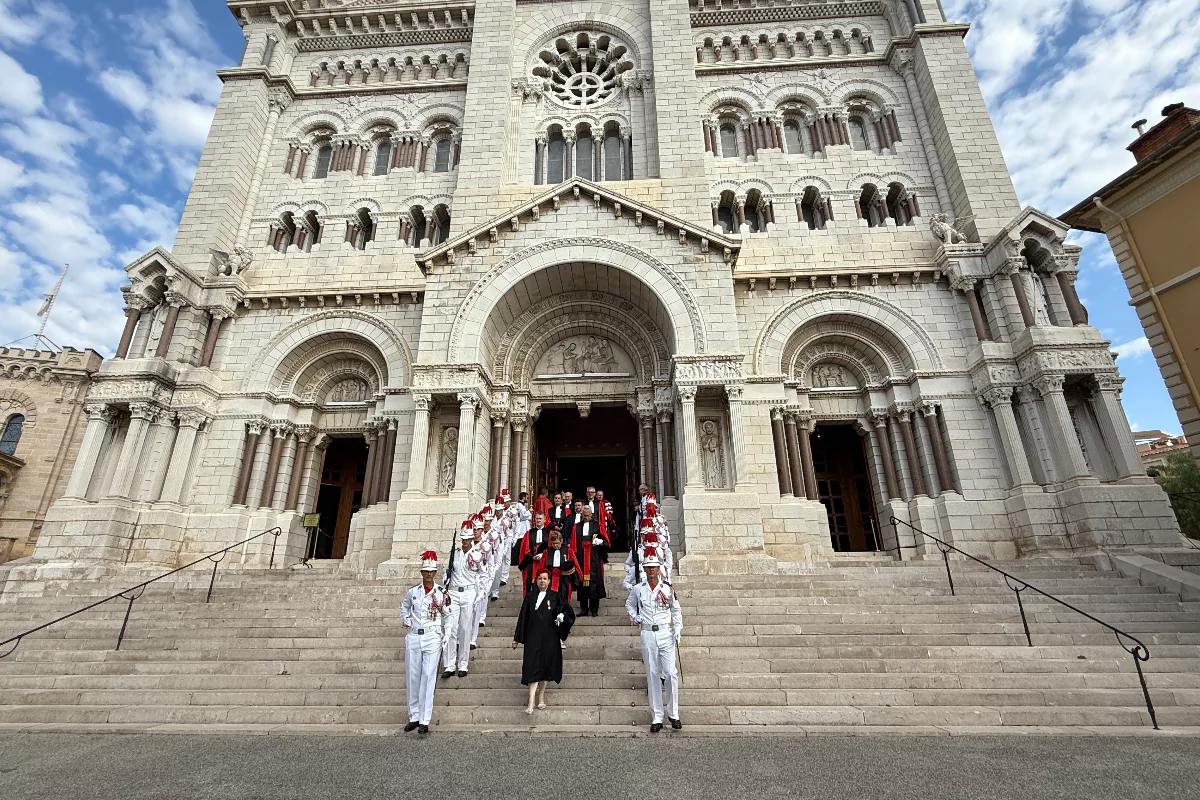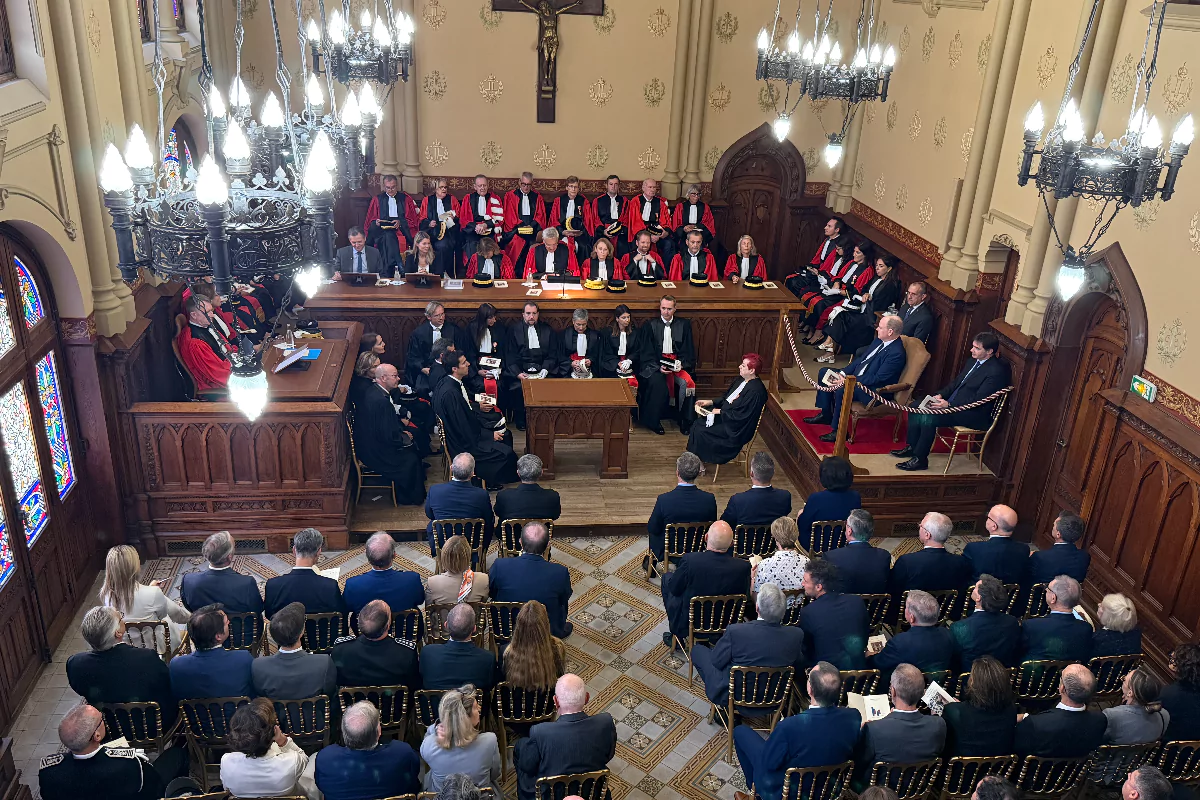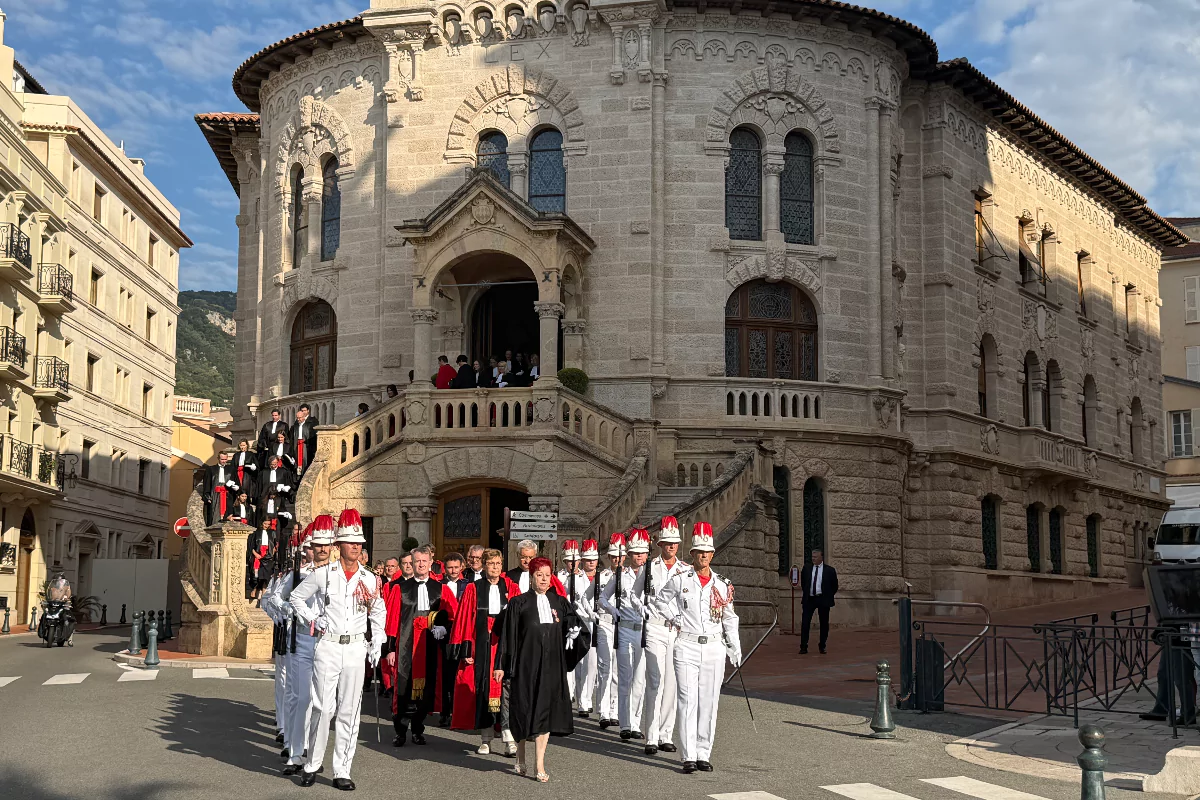The opening of Monaco’s 2025/2026 judicial year kicked off with the traditional Mass of the Holy Spirit at Monaco Cathedral on Wednesday morning, before proceeding to the solemn ceremony at the Palace of Justice.
Prince Albert II attended the ceremony, which was presided over by Francis Jullemier-Millasseau, First President of the Court of Appeal, and Stéphane Thibault, Prosecutor General.
During his speech, Stéphane Thibault revealed a staggering 34% increase in complaints and reports over the past two years, highlighting Monaco’s focus on financial crime as the Principality works to exit the Financial Action Task Force (FATF) grey list.
Money laundering convictions have surged from just four in 2022 to 29 in 2024 and with 28 already recorded in 2025. The Prosecutor’s Office is currently managing assets worth nearly €120 million seized in ongoing cases, in addition to €531 million seized in investigation chambers.
Thibault noted that Monaco completed its second cycle of the FATF action plan last month, with the final third cycle due in January. Additionally, the FATF General Assembly acknowledged in June the significant resources and measures deployed by the Principality during the first cycle.

Courts handle increased workload
The Courts of Appeal delivered 135 civil rulings during 2024-2025, up 10% from the previous year, while criminal appeals remained relatively stable with 44 correctional rulings and two criminal court judgments.
However, the most striking was the doubling of cases completed by the three investigating chambers from 46 to 96. Thibault reported that the Prosecutor’s Office resolved 10% more cases at the investigation stage, processing nearly 300 volumes.
Meanwhile, despite this increased workload, Jullemier-Millasseau proudly stated that processing times remain reasonable at approximately four months across different chambers, though additional hirings may become necessary soon.
On his part, Jullemier-Millasseau devoted much of his address to judicial independence as a cornerstone of democracy, drawing on Montesquieu’s principle of separation of powers.
“Judges must act with integrity, probity, and professional conscience,” he said. He described the rule of law not as abstract principles but as “a shield for our freedoms” and “a form of moral contract” that supports democratic society.
Regarding sentencing, the number of imprisonments increased by 10%. Monaco’s prison has 92 places with an occupancy rate below 50%, “the envy of our close neighbours”, Thibault remarked.

Priorities for 2026
Thibault outlined three key objectives for the coming year: continued focus on financial crime, more rigorous prosecution of violence against women and vulnerable people, and modernisation of the criminal records system, which currently issues nearly 4,000 records annually from a paper-based registry of 10,000 files.
He also mentioned forthcoming procedures including plea bargaining and deferred prosecution agreements pending National Council approval, which should accelerate certain procedures.
The ceremony formally closed the 2024-2025 judicial year and opened 2025-2026 with all courts resuming full operations
Stay updated with Monaco Life: sign up for our free newsletter, catch our podcast on Spotify, and follow us across Facebook, Instagram, LinkedIn, and Tik Tok.
Main photo by Monaco Life.
